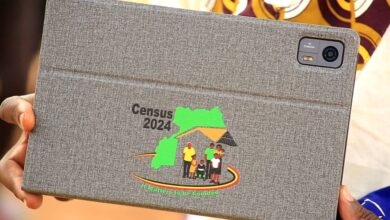Feminists in Uganda demand for just transition ahead of COP28
According to Paris agreement, developed countries pledged to support developing countries to increase on climate change adaptation and mitigation.

By Ireen Twongirwe
Over 600 million people in Africa are without access to cheap, flexible, and accessible electricity. Energy poverty occurs when energy bills represent a high percentage of consumers’ income, or when they must reduce their household’s energy consumption to a degree that negatively impacts their health and well-being.
Most importantly, Uganda has abundant energy resources, especially hydrological and other renewable resources, yet there is widespread energy poverty throughout the country.
The country’s energy sector faces considerable challenges including acute power shortages, increased demand, and a lack of new power-generation projects, increased cost to purchase power, high maintenance, among others.
It’s important to note that these challenges greatly affect women because there depend most on energy for cooking, breastfeeding the baby at night, ironing the clothes, and most women work from home so they need electricity to produce effective and efficiency work.
The challenges of energy security, economic competitiveness, climate change, and other environmental issues, driven by a variety of factors ranging across technology readiness, market demand, and public policy.
Amidst the abundant natural resources and specifically renewable energy, in Uganda, most households depend on the use charcoal or firewood for cooking.
Unfortunately, this practice is not only inefficient but also causes air pollution, which is bad for the environment and the health of people.
According to the World Health Organization, indoor air pollution from solid fuels is responsible for about 3.2 million deaths globally each year, many of whom are children.
Moreover, deforestation is a significant environmental issue in Uganda, as forests cover only about 12% of the country’s land area.
Oil was discovered in 2006 in Uganda. Ugandan were excited that this project will boost their economy. However it became oil curse instead of blessing.
The East Africa Crude Oil Pipeline (EACOP) displaced over 10,000 households in both Uganda and Tanzania , the Project Affected Persons (PAPs) were unfairly compensated ,there was compulsory land acquisition , Land grabbing leading to food insecurity hence causing hunger.
This pipeline has been a climate change boom. Fossil fuels, for instance, constitute about 79 percent of all greenhouse gas (GHG) emissions, together with industrial activities, transport and built structures. An urgent and just phase-out of fossil fuels is what the world needs. It is the pivot on which life on the planet balances.
According to Paris agreement, developed countries pledged to support developing countries to increase on climate change adaptation and mitigation.
However, as developing country we have continued to suffer the consequences of climate change impacts such prolonged drought, temperature raise, high sea levels, floods, Loss and Damage. All these factors forced Global south countries to pay for what they didn’t pollute.
Ahead of COP28 as feminists, we call for an end to fossil-fuel-induced energy apartheid in Africa which has left 600 million Africans without access to modern clean renewable energy. There is a need of Scaling up cost-effective, clean, decentralized, renewable energy as the fastest and best way to end energy exclusion and meet the needs of Africa’s people.
There is also need to end capitalism economy and transit to Regenerative economy where people, animals and plants live together peacefully. Communities benefiting from their minerals also not only Global North taking advantage of our resources in our own land.
We also call for a transformative, people-led process involving rapid social, economic and political change to achieve energy democracy and deliver renewable energy assets into the hands of people and communities across the continent.
There is also need to hold big polluters accountable so that they MUS PAY FOR WHAT THEY POLLUTE in global south countries. While paying, we demand for grants not loans because there are not doing us a favor as developing countries but they are doing what they must do for the losses and Damages caused in our countries.
More so, we demand for energy transition. Energy transition means change from the way we produce and consume energy in our day to day lives. The government and oil companies should invest more in green economic alternatives that will improve on the social economic development of the country. We must, therefore, make commitments to end dependence on fossil fuels.
In a nutshell, to ensure Africa is not locked-in fossil gas production, we join with movements across Africa in demanding an end to fossil gas and other dirty, dangerous, obsolete and inappropriate energy systems.
For God and my country
Ireen Twongirwe is the Executive Director of Women for Green Economy Movement Uganda






